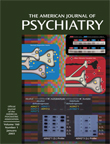To the Editor: J. Stuart Ablon, Ph.D., and Enrico E. Jones, Ph.D.
(1), reported that interpersonal therapy and cognitive behavior therapy share similar “processes”; hence, they are misleadingly labeled distinct psychotherapies. The authors based this on judges’ ratings of session transcripts from the National Institute of Mental Health (NIMH) Treatment of Depression Collaborative Research Program and on correlations of Q-set items with “ideal-prototype” sessions elicited from experts in interpersonal and cognitive behavior therapy. The authors polemically interpreted these findings to discredit randomized controlled trials of psychotherapy.
Are their methods biased? Perhaps the 100 generic Q-set items (“distant or aloof” [p. 777]), originally designed to measure psychoanalytic psychotherapy, are not comprehensive and cannot discriminate between specific psychotherapies. The Q-set never defined techniques or strategies. The authors’ statistical reification blinded them to real differences between therapies.
Which “experts” defined the ideal sessions? I twice failed, as did several interpersonal therapy experts I solicited, to answer the questionnaire, finding it unrelated to the essentials of interpersonal therapy and unlikely to discriminate among treatments. If the authors’ study worked from faulty templates (and transcripts rather than sessions tapes), no wonder Drs. Ablon and Jones confounded two overlapping but distinct treatments. At a conference, I once asked the participants about instrumental bias; they simply denied it. The article by Drs. Ablon and Jones did not discuss this limitation.
Adherence
(2,
3) and other measures
(4) are used to discriminate between interpersonal and cognitive behavior therapy, as can any clinician with casual familiarity. Of course, psychotherapies overlap: “common factors”
(5) have long been acknowledged as essential to treatment (even for pharmacotherapy
[6], which even the authors might accept is not cognitive behavior therapy) and are responsible for significant outcome variance. A supportive alliance provides common ground, allowing therapists to use different techniques, which may then make a difference. Hence, the sometimes different showings of interpersonal therapy and cognitive behavior therapy in randomized controlled trials, e.g., the advantages of interpersonal therapy for more depressed patients in the NIMH Treatment of Depression Collaborative Research Program and HIV-positive depressed patients
(7) and the advantages of cognitive behavior therapy for bulimia nervosa
(8). Drs. Ablon and Jones reinvented the common factors, artificially conflating them with therapeutic equivalence and blurring actual distinctions.

